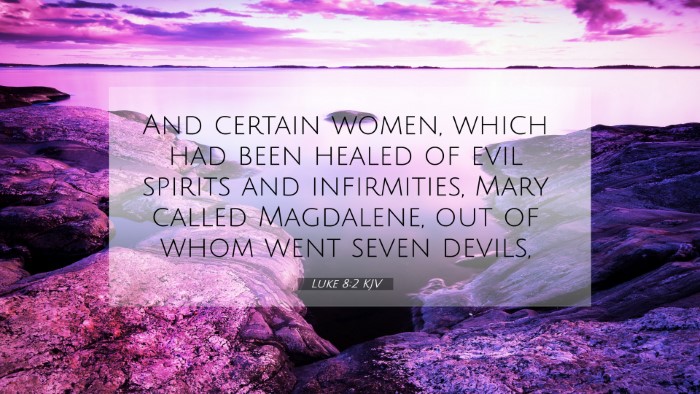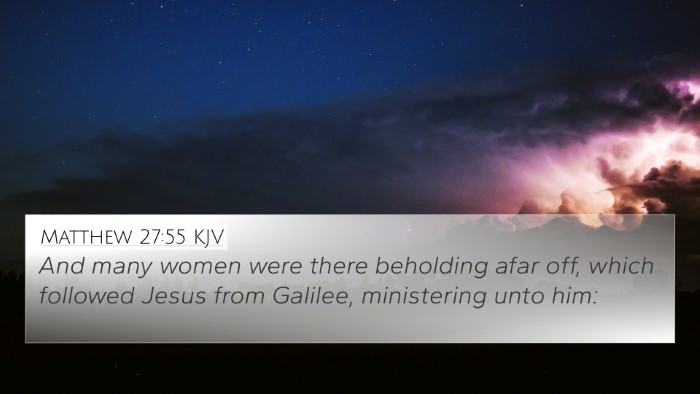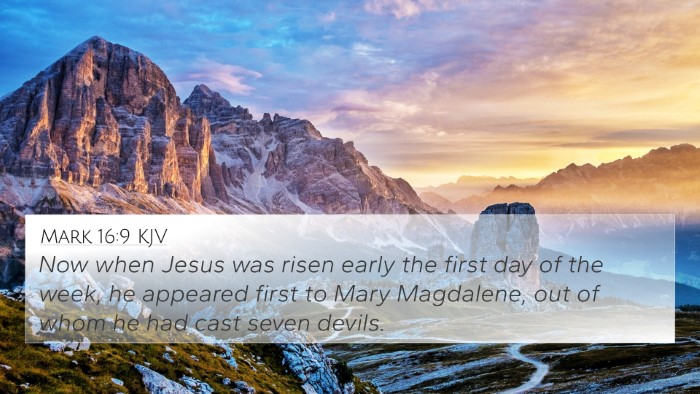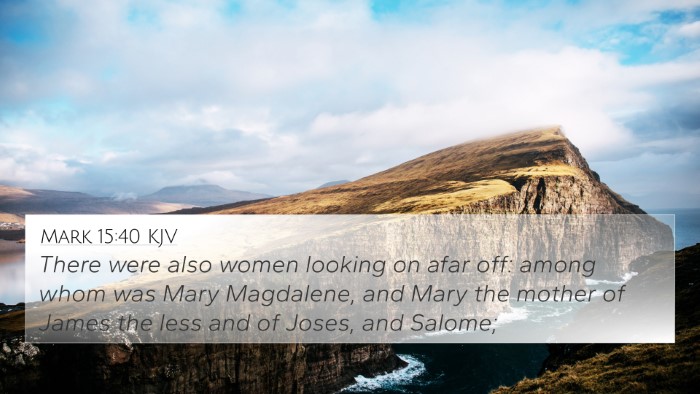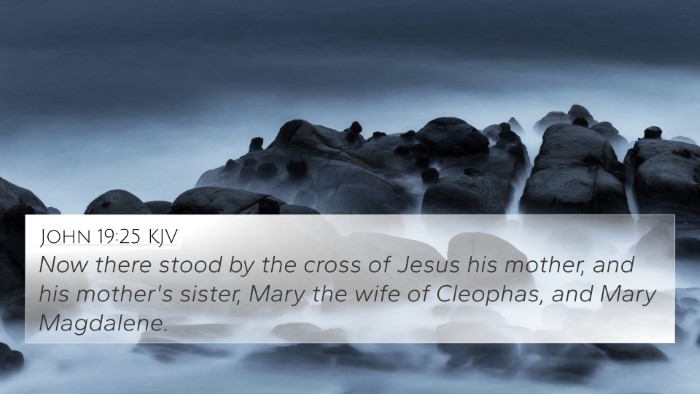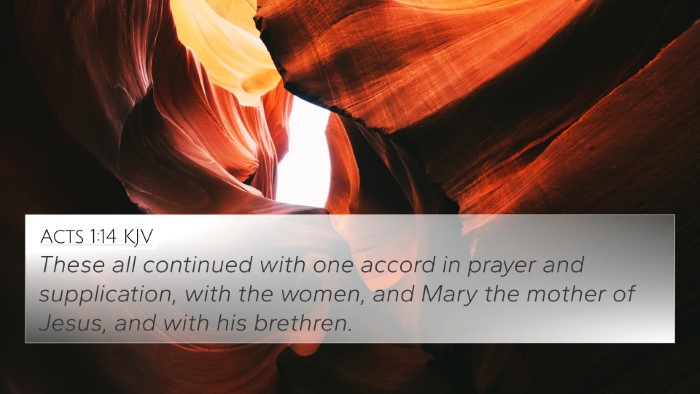Luke 8:2 – Overview
The verse states, "And certain women, which had been healed of evil spirits and infirmities, Mary called Magdalene, out of whom went seven devils," (KJV). This passage is significant as it highlights the role of women in Jesus' ministry and reflects the transformative power of His healing. The mention of Mary Magdalene also introduces her story as a pivotal figure in the New Testament.
Meaning and Significance
-
Restoration and Healing:
Mary Magdalene’s healing illustrates the salvific power of Jesus. She had been plagued by demons, which symbolizes deep spiritual and emotional torment. Healings in the Bible often manifest God’s authority over evil, exemplified in the presence of evil spirits ('evil spirits and infirmities'). Commentators like Adam Clarke express that her restoration is not only physical but also spiritual, freeing her from her past afflictions.
-
Involvement in Ministry:
The passage underscores the active role women played in Jesus' ministry. Matthew Henry notes that these women were not mere followers; they served out of gratitude for the healing they received. This involvement signifies a break from traditional societal norms of the time, showcasing early Christian inclusivity.
-
Mary Magdalene’s Identity:
Describing Mary as 'out of whom went seven devils' indicates her profound transformation. This detail enhances her identity, as Adam Clarke explains, emphasizing both her suffering and her deliverance. The number seven often represents completeness, indicating a total release from her previous torments.
-
Empowerment of Women:
This verse contributes to a broader biblical theme of the empowerment of women. Connecting with other verses like Galatians 3:28 ("there is neither male nor female"), it shows the equal honor and importance given to women in the service of God’s kingdom, as noted by Albert Barnes.
-
Faith and Response:
The gratitude and service of those healed reflects a faithful response to Jesus’ miracles. This faith can be further cross-referenced with Luke 7:47, where it speaks of the one who is forgiven much, loves much. The linkage of Mary’s experience with her active support of Jesus mirrors the response of faith that is central throughout the Gospels.
Bible Cross References
- Mark 16:9 - Details Mary Magdalene's encounter with the resurrected Christ.
- Luke 7:37-50 - A similar theme of forgiveness and gratitude in the woman who anoints Jesus' feet.
- Matthew 27:55-56 - Women observing the crucifixion, illustrating their role in the events surrounding Jesus' life.
- John 20:1-18 - Mary Magdalene's pivotal role in the Resurrection story.
- Isaiah 61:1 - Prophetic mention of healing the brokenhearted aligns with Jesus’ healing mission.
- Luke 4:18 - Jesus stating His mission of healing and deliverance.
- Revelation 12:11 - A broader representation of overcoming through testimony and sacrificial love mirrors the impact of Mary’s story.
Thematic Connections
The themes presented in Luke 8:2 guide us through understanding broader biblical narratives. The inclusion of healing, service, women's roles, and the transformative power of faith connects with multiple scripture references. When analyzing these cross-links, a deeper appreciation of biblical texts emerges, fostering a comprehensive understanding of God's work through different individuals.
Cross-Referencing Insights
-
Tools for Bible Cross-Referencing:
Utilizing Bible concordances and cross-reference guides can enhance our understanding of how various scriptures inform one another. It’s beneficial to recognize the overarching narratives and themes that link passages together, as Luke 8:2 serves as an entrance to the study of women's ministry in the early church.
-
Exploring Relationships Between Texts:
By identifying the connections between the Old and New Testament (e.g., Isaiah 61:1 and Luke 4:18), one can witness the continuity of God's plan through various agents, whether prophets or apostles. Mary Magdalene exemplifies this continuity in the Gospels.
Conclusion
In summary, Luke 8:2 is rich with meaning, showcasing Mary Magdalene’s healing and commitment to Jesus’ ministry while illuminating the impactful role of women in the early Church. As we engage in comparative Bible verse analysis, drawing upon cross-references and thematic connections, we deepen our comprehension of scripture and the significance of individual narratives within the wider biblical context. This analysis invites believers and scholars alike to explore the depths of biblical texts and encourage the practice of scriptural cross-referencing for a fuller grasp of God’s message.


